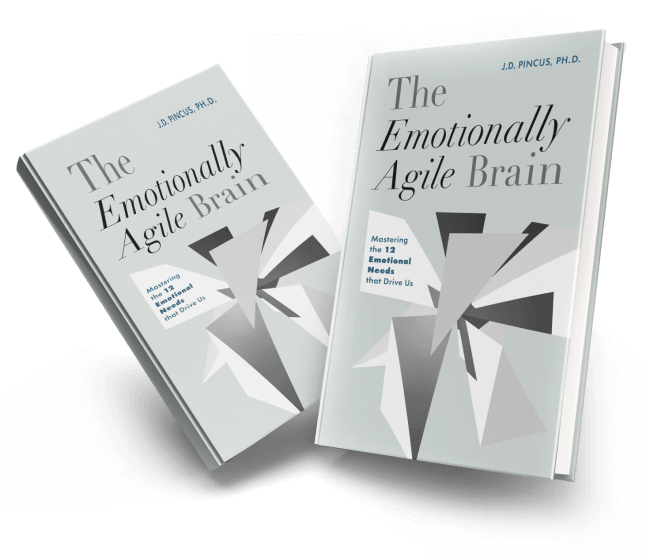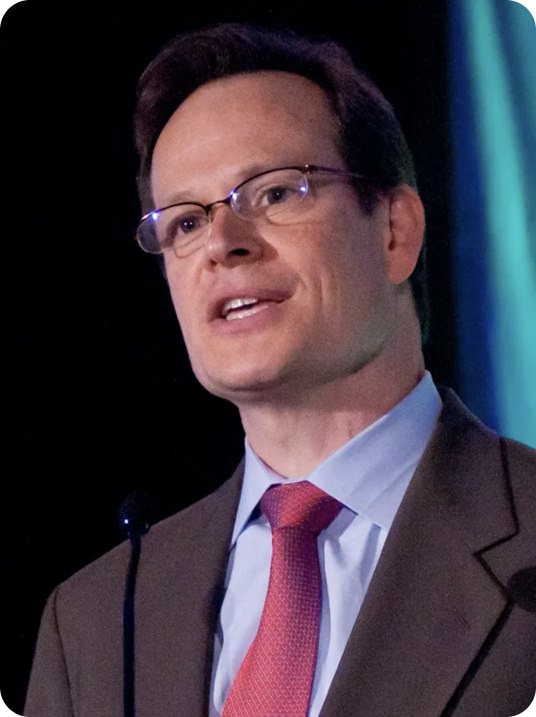
The Emotionally Agile Brain
Mastering the 12 Emotional Needs that Drive Us
by J.D. Pincus, Ph. D.
Available Now!
What Readers Are Saying about The Emotionally AgileBrain
A revolution has been quietly taking place in academic psychology, economics, neuroscience, marketing, and business. In study after study, emotional forces massively outweigh human rationality in determining our actual choices and actions. This insight has reshaped both science and industry as its power is harnessed for commercial ends. Those of us who are engaged in the nexus of neuroscience, psychology, and human potential have an obligation to raise awareness of these discoveries, and, more importantly, to use them to actually improve people’s lives.
AgileBrain is based on decades of psychological research conducted by the author, and others, published in peer-reviewed academic journals. It begins with the discovery of the first principles of all human motivation. Motivation is fundamentally about change. These principles can be phrased as two questions:
“Where in your life do you wish to make a change?”
To answer this question, we can choose from four life domains: the Self, the Social, the Material, and the Spiritual. Note that these represent pairs of opposites: Self vs. Social, Material vs. Spiritual.
“What kind of change do you wish to make?”
To answer this question, we can choose from Aristotle’s three levels of existence: foundational (being), experiential (doing), and aspirational (having).
The answers to these two questions form a “Periodic Table of the Elements” for human motivations in the form of a three-by-four matrix. Because there are no other possible life domains or levels of aspiration, the reader can have confidence that every possible human motivation is accounted for.
A key takeaway is that all twelve emotional needs are operating and directing us all the time, and that a key to a happy, actualized life is to pursue fulfillment of needs in a balanced way, which avoids serious problems associated with unbalanced need fulfillment. A recurring theme in The Emotionally Agile Brain is the value of distinguishing between authentic need fulfillment and the superficial, inauthentic substitutes offered by our consumer culture.
After analyzing motivational data from hundreds of thousands of individuals (and consulting to scores of Fortune 500 clients), author J. D. Pincus explains it this way: “Everyone has a unique ‘fingerprint’ of emotional needs at any given moment in time. Becoming aware of that motivational state is a profound revelation for most people. It cuts right through the noise and distractions of life, and frees them to pursue what they really want.”
Team Emergent States as Emotional Needs
The concept of Team Emergent States (TES) is gaining increasing attention in discussions of organizational leadership and team effectiveness. Despite…
Validation of a Brief Image Elicitation Task as an Indicator of Subjective Wellbeing
J.D. Pincus discusses the validation of a brief image elicitation task as a novel method to assess subjective wellbeing in…
Leadership as a Determinant of Need Fulfillment: Implications for Meta-Theory, Methods, and Practice
Leadership remains a major focus in both private and public sectors, with a huge investment of $356 billion in 2015…
Organizational Culture as a Need Fulfillment System: Implications for theory, methods, and practice
This article critiques the current understanding of organizational culture, highlighting the lack of theoretical consensus and clear definitions. It proposes…
About the Author
J.D. Pincus, Ph.D. is Chief Innovation Officer at Leading Indicator Systems (d/b/a AgileBrain), focusing on emerging methods for measuring emotion and motivation. He developed the unified pyramid model of human motivation and the AgileBrain measurement technique. His framework has been successfully applied to the problems of Leadership Effectiveness, Team Effectiveness, Organizational Culture, Values, Goal Setting, Employee Engagement, and Employee Well-being. His seminal article on the concept of motivation in applied psychology has been cited in 226 subsequent papers. His book, The Emotionally Agile Brain: Mastering the 12 Emotional Needs that Drive Us, was recently published by Rowman & Littlefield.
Published Research


